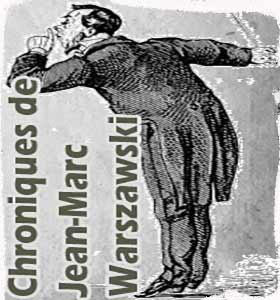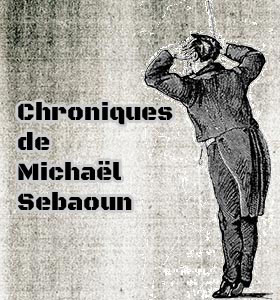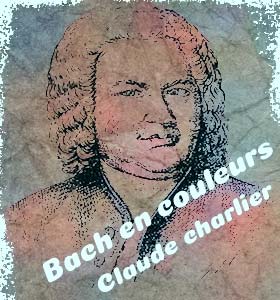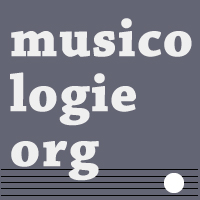Influence of the Arts in the Middle Ages: Reflexions on the Aquitanian Ms. Paris, BnF, latin 1139
Paris, 19-21 March 2019, Paris
Call for Papers
The manuscript Paris, BnF, lat. 1139 is a composite manuscript whose origins are not precisely known. It was preserved in the library of the abbey Saint-Martial de Limoges, one of the most prestigious book collections of the Middle Ages, since as early as the middle of the thirteenth century. The manuscript includes the first expressions of a new way of singing divine praise. These compositions do not so much break with older traditions as add to what already existed.
The oldest and most important part of the manuscript (end 11th-beginning of the 12th century) contains many festive chants: tropes, versified songs (versus and Benedicamus domino, so called nova cantica) troped epistles and liturgical drama (ff. 32r-117r). Also added are votive offices for the BVM, notated in the thirteenth century (ff. 119r-148r), a full sequentiary dating from the end of the twelfth century (ff. 149r-228v), and parts of two other sequentiaries of the thirteenth century (f. 2r-20v). Throughout the manuscript, one can also find texts about liturgical practice and the daily life of the abbey (such as an inventory of altar ornaments, a list of the books in the library, and so on).
This heterogeneous anthology thus allows us to observe repertories sung during as much as two hundred years as well as evolution in the liturgical practices of specific types of celebration. As a diverse collection it reveals the creative dynamic and cultural exchanges enjoyed by Saint-Martial, whilst at the same time indicating a wide network extending across Southern France and beyond.
This manuscript is an exceptional book, that attracted at an early stage the interest of scholars:
– It includes some of the oldest testimonies of Aquitanian polyphony.
– It has the oldest collection of nova cantica.
– It includes several liturgical drama, among them the Sponsus, which is unique to this source.
– It sits at the crossroads between Latin and vernacular repertories.
– The notator of the oldest part used a sign in the form of a rhombus to indicate semi-tones. This notational particularity was quickly abandoned in the South of France but was widely adopted in the West of the Iberian Peninsula, especially in Portugal.
An inventory of the oldest part was made by Hans Spanke (1931); Judith M. Marshall devoted her entire, mainly analytical PhD dissertation (1961) to lat. 1139. Jacques Chailley (1952), Sarah Fuller (1969) and Leo Treitler (1978) also included this manuscript in their studies of the Aquitanian repertory. It appears that many chants copied in latin 1139 have concordances in sources not only from Southern France but also in the festive offices of the Circumcision from Beauvais, Sens and Le Puy (Wulf Arlt, 1970, 2000) in addition to other manuscripts from further afield.
This conference is open to scholars from many disciplines (history, art history, history of literature, musicology, philology, palaeography…) in order to tackle all the aspects of this complex manuscript. The meeting will provide an opportunity to fill lacunae in the historiography, especially in dealing with the more recent sections of the manuscript. We will therefore consider the manuscript itself, and, at the same time, attempt to place it within a wider context, beginning with the abbey of Saint-Martial and then within networks of creation and dissemination beyond the Limousin territory. The specificity of this conference will lie in the assessment of the circulation of artistic and intellectual practices. From this perspective, latin 1139 will be the starting point for a renewed study of creativity at the heart of the Midi and of its spread in space and time, but the manuscript itself will not be the only focus.
Papers might deal with the following themes (but are not limited to these):
Influence: comparison of Paris, BnF, latin 1139 with other sources
– palaeographic questions, both musical and textual; the use of the neumatic characteristics of the manuscript’s notations in other traditions (above all in the Iberian Peninsula);
– musical and literary features of the repertory;
– codicological approaches, presentation, layout and decoration of the manuscript in relation to a larger context of manuscripts.
Dissemination: Saint-Martial de Limoges as a musical and artistic centre
– the position of Saint-Martial with regard to the dissemination of repertories and artistic practices from the Limousin into other regions;
– the abbey as a creative centre as well as its reception of external material;
– the circulation and transfer of manuscripts to and from the library of Saint-Martial;
– the liturgy and communal life of the abbey, as revealed by the musical repertories and the non musical additions in latin 1139.
Circulation: the reception and destiny of repertories notated in Paris, BnF, latin 1139
– consideration of the dissemination, networks of repertories notated in latin 1139: manuscripts from Norman Sicily, offices of the Circumcision, German manuscripts including the Carmina Burana, Cantatoria from Prague, etc.;
– relationships between the repertories of latin 1139 and Parisian sources of the twelfth and thirteenth centuries (nova cantica, sequences);
– consideration of the complex material aspects of the manuscript as testimony to ways of using books and repertories: transformations and re-compositions in response to new needs;
– exchanges and crossovers between Latin (versus, tropes, epistles, etc.) and vernacular repertories.
Papers will be published following a peer-review process.
Please see https://colloque1139.fr/ for more information.
Scientific Committee: Maria Alessandra Bilotta (IEM-FCSH/NOVA, Lisbonne), Océane Boudeau (CESEM-FCSH/NOVA, Lisbonne ; EPHE/SAPRAT, Paris), François Bougard (CNRS, IRHT, Paris), Pascale Bourgain (Centre Mabillon/École nationale des Chartes, Paris), Christelle Cazaux-Kowalski (FHNW / Musik Akademie Basel, Schola Cantorum Basiliensis), Christelle Chaillou (CNRS, CESCM, Poitiers), Marie-Noël Colette (EPHE/SAPRAT, Paris), Gilbert Dahan (EPHE/LEM, Paris), Charlotte Denoël (Centre Mabillon/École nationale des Chartes, Paris), Manuel Pedro Ferreira (CESEM-FCSH/NOVA, Lisbonne), Andreas Haug (Universität Würzburg), Katarina Livljanić (Université Paris-Sorbonne, IReMus), Guy Lobrichon (CIHAM UMR 5648 – Université d’Avignon et des Pays de Vaucluse), Christian Meyer (CNRS, CESR, Tours), Susan Rankin (University of Cambridge), Anne-Zoé Rillon-Marne (UCO, Angers ; CESCM, Poitiers)
Organisation Committee:Océane Boudeau (CESEM-FCSH/NOVA, Lisbon ; EPHE/SAPRAT, Paris), Anne-Zoé Rillon-Marne (UCO, Angers ; CESCM, Poitiers)
The conference will take place on 19-21 March 2019 in the Bibliothèque nationale de France (58, rue de Richelieu, 75002 Paris), the Institut de Recherche et d’Histoire des Textes (40, avenue d’Iéna, 75116 Paris), and the Fondation Calouste Gulbenkian – Délégation en France (39, bd de La Tour-Maubourg, 75007 Paris).
Deadlines: Proposals for papers (title and abstract: c. 300 words) to info@colloque1139 : 31 May 2018
Response fram the Scientific Committee: 30 June 2018
Conference: 19-21 March 2019
Finished texts of papers for peer-review and publication: 30 September 2019
Lunch will be offered to speakers. Bursaries for travel and accommodation will be considered case by case, depending on the funding sources for the conference.



 À propos - contact | S'abonner au bulletin | Biographies de musiciens | Encyclopédie musicale | Articles et études | La petite bibliothèque | Analyses musicales | Nouveaux livres | Nouveaux disques | Agenda | Petites annonces | Téléchargements | Presse internationale| Colloques & conférences | Collaborations éditoriales | Soutenir musicologie.org.
À propos - contact | S'abonner au bulletin | Biographies de musiciens | Encyclopédie musicale | Articles et études | La petite bibliothèque | Analyses musicales | Nouveaux livres | Nouveaux disques | Agenda | Petites annonces | Téléchargements | Presse internationale| Colloques & conférences | Collaborations éditoriales | Soutenir musicologie.org.
Musicologie.org, 56 rue de la Fédération, 93100 Montreuil, ☎ 06 06 61 73 41.
ISNN 2269-9910.

Mercredi 20 Novembre, 2024

